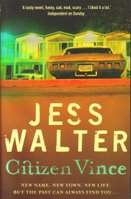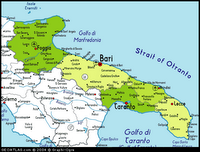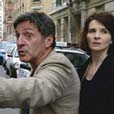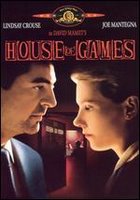His is an angry book, and that anger jumps out at you from the pages. Frankly it is not a "pleasant" book and it probably is not intended to be, due to its subject matter and its general tone.
Marco Buratti [alias the Alligator] an ex-student, ex-prisoner and former blues singer is an unlicensed private detective. He has an obsession with the truth, and calvados, an interesting combination.
Marco and his two associates Beniamino Rossini, an old time gangster, and Max the memory, a left wing radical, take cases that others would reject. Rossini's criminal connections allow them to go into areas and take the investigations on routes the police would find impossible to travel.
In this book, Carlotto's second translated into English, Mariano Giraldi asks them to investigate the strange abduction of his wife, the beautiful Helena.
It soon becomes clear that the married couple have become deeply involved in the S&M scene. The Alligator, Rossini and Max must try and find the gang who are producing disgusting videos of women being tortured and killed.
The leader of the gang is known as the Master of Knots, and what seems thoroughly depressing is that these attractive women have entered the S&M scene, because they enjoy being dominated and punished.
At one stage Max, still an idealist, goes off to join the protests at the G8 meeting in Genoa. A description of police violence in a reaction to the demonstrators, who were apparently stirred up by agent provocateurs, gives Carlotto a chance to demolish the police and prison system in general.
Marco and Max have never handled a gun, but Rossini, is a violent gangster prepared to kill a lowlife, but who also sends flowers to little old ladies. He regards himself as some kind of later day Robin Hood dishing out justice, where there is only injustice.
He did remind me of the South London Richardson Gang, who tortured petty criminals, but never touched "civilians", and used this as justification for their actions.
Carlotto has obviously been scarred by his arrest for murder, his time on the run, his imprisonment and his wait for the eventual pardon. It is deeply ingrained in his work and I don't think this is a book you are meant to enjoy. But it is a book intended to make you think about politics, crime, society, and justice.
"Probably the best living Italian crime writer" Il Manifesto
** This question was part of an aptitude test for entry to the U.S. Naval Academy.
The correct answer is "4. food".
But a Cherokee Indian from Oklahoma Ernest E. Evans, from personal experience no doubt and a different perspective answered "3. hunger".
Evans went on to reach the rank of Commander, and went down with his ship the USS Johnston in 1944 at the Battle of Leyte Gulf earning a posthumous Medal of Honor. [Naval History December 2006]


 Those lucky people who can understand Italian have a treat in store at the Camilleri Fan Club website with photos of Vigata and other goodies.
Those lucky people who can understand Italian have a treat in store at the Camilleri Fan Club website with photos of Vigata and other goodies.

 I may not be posting as much over the next few weeks. Because over on the far side of the world there is a contest taking place that will take a lot of my attention.
I may not be posting as much over the next few weeks. Because over on the far side of the world there is a contest taking place that will take a lot of my attention.







 Guido Guerrieri names House Of Games as one of his ten favourite films, in the opening chapters of A Walk In The Dark, the sequel to Involuntary Witness.
Guido Guerrieri names House Of Games as one of his ten favourite films, in the opening chapters of A Walk In The Dark, the sequel to Involuntary Witness. 





